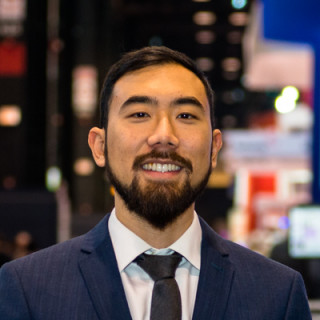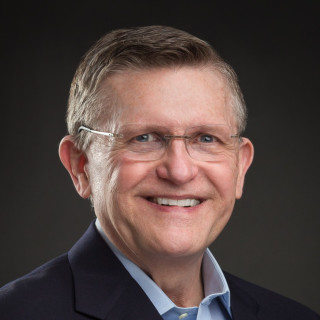 At the epicenter of the COVID-19 crisis, hospitals in New York City have now borne the brunt of the pandemic’s effect for weeks. The death toll in the region has reached staggering levels, and new symptoms and rare illnesses linked to the disease continue to emerge.
At the epicenter of the COVID-19 crisis, hospitals in New York City have now borne the brunt of the pandemic’s effect for weeks. The death toll in the region has reached staggering levels, and new symptoms and rare illnesses linked to the disease continue to emerge.
The pandemic, in turn, has strained front-line workers throughout the city, including clinicians at Montefiore Medical Center who encounter numerous deaths every day. For Rasha Khoury, MD, an ob/gyn, the current situation evokes memories of her Doctors Without Borders medical assignments in war-torn Afghanistan and in Sierra Leone at the onset of the Ebola epidemic. Dr. Khoury has completed six assignments with the organization and serves on its U.S. board of directors.
In an interview with Doximity, Dr. Khoury highlighted many similarities between the COVID-19 and Ebola environments, including constant exposure to health risks and tragedy. Though clinicians who enlist in Doctors Without Borders at least have the opportunity to prepare themselves before heading into precarious locations.
“What I starkly notice right now is that people who were going about their normal lives in New York are being thrust into the middle of a crisis, many of whom have never seen anything like it in terms of the loss and unpredictability,” she said. “It’s jarring for many people. It’s sobering, and it’s not an experience they have had before.”
Reliving Ebola Through COVID-19
In 2014, while on obstetric assignment in Sierra Leone, Dr. Khoury attended to a woman who was hemorrhaging in the hospital after home childbirth. At the time, reports of Ebola were surfacing in the country, prompting hospital staff to urge the patient and her family to undergo testing for the virus. The family refused.
As Ebola spread across the country, the decision to reject testing became increasingly common. “People began associating testing and being moved into isolation with dying, which generated a lot of stigma and fear around the disease, and that led to less reporting within the community and further spread,” she said. “This sounded a big alarm about how unprepared we were to protect staff and other patients in the facility.”
Hospital leadership responded to the outbreak by converting the hospital into an Ebola treatment center and implementing disease-specific triage measures. Clinicians not directly involved in treating Ebola patients had to shift their roles to facilitate patient triage and outreach.
Now in New York, Dr. Khoury feels like she is reliving her experience in Sierra Leone. Clinicians are encountering numerous patients that do not want to be swabbed or tested for fear of being isolated and not receiving the medical care they need. She noted that these patient behaviors are raising many of the same concerns brought up during the Ebola epidemic.
Dr. Khoury has been drawing from her past experiences with Doctors Without Borders to help her manage work during the COVID-19 crisis. “Having experience with measures such as sheltering in place in Afghanistan and needing to reduce my risk of disease exposure in West Africa has helped me feel more comfortable and calm in the midst of COVID-19,” she said.
What’s more, the international work helped her learn how to be adaptable, such as taking on roles that were not necessarily part of the job description, as well as how to expand a hospital’s care capacity in an emergency and stay connected to others in the midst of a crisis. “I think, for those with similar experiences, the sense of calm you can bring to the team and even optimism that there is hope for the period after, that there can be positives that we can take out of this pandemic, can be beneficial,” she said.
Health care workers at Montefiore have already begun to notice the silver linings of COVID-19 at their hospital. According to Dr. Khoury, the pandemic has led to a recent boost in positive reinforcement from hospital leadership to staff, and helped the hospital uncover redundancies in medical care. In addition, dealing with the crisis has underscored the value of tailoring medical services to patients — a core practice for Doctors Without Borders — and providing patients with the specific kind of care or test they need instead of assuming that need.
Clinicians are also collaborating with nonclinical staff more frequently. “Working alongside many other skilled workers helps remove professional hierarchy; you learn to be more humble and see other people’s contribution for what it is, not based on their title,” Dr. Khoury said. “That’s been key here, valuing the security guards and housekeepers as much as the nurses and physicians, and showing that gratitude.”
Dignity Amidst Tragedy
Still, providing optimal medical care continues to be a challenge with COVID-19. Montefiore has had to enact major changes to the way it provides care, including for pregnant patients. Labor rooms have turned into isolation units, nonemergency in-person visits are no longer allowed, and the ob/gyn department has turned to telehealth to restructure outpatient management for follow-up exams.
“At the beginning of COVID care, we weren’t allowing other people in the patient room, even when death was imminent,” Dr. Khoury said. “Women were attached to a device and observed on video monitors behind closed doors.”
The department eventually altered its approach after receiving the necessary medical supplies, allowing one person in full PPE to be in the labor room with the patient.
This proved to be a blessing for Dr. Khoury, who gave birth herself at the hospital in early April, with the COVID-19 response in full swing. “I felt the anxiety of my patients coming into a hospital where COVID-19 patients were being cared for,” she said. “Knowing that there could be transmission was a terror, but the staff was all wearing N95 masks, and my partner remained in the room.”
Already back on the front lines, Dr. Khoury continues to explore ways to humanize the birth and death experience for her patients. She and her colleagues have set up a system whereby mothers, wearing a face mask, are able to pump breast milk and at least be in the same room as the baby during feeding.
“Even if someone is in the ICU and likely to die, what can you do to humanize the experience for their family?” Dr. Khoury asked. “How do you make sure that you’re keeping patients safe in a dignified way that doesn't disempower them? It’s very important in these times to focus not just on the quality of health care but also on the dignity of that care. That's something I‘m trying to pay extra attention to.”
How Has Patient Care During the COVID-19 Pandemic Altered Your Patient Care Philosophy?
Illustration by Jennifer Bogartz
Click here to see more perspectives on COVID-19 from the Doximity network.
Click here for up-to-date news about COVID-19 on Doximity.






